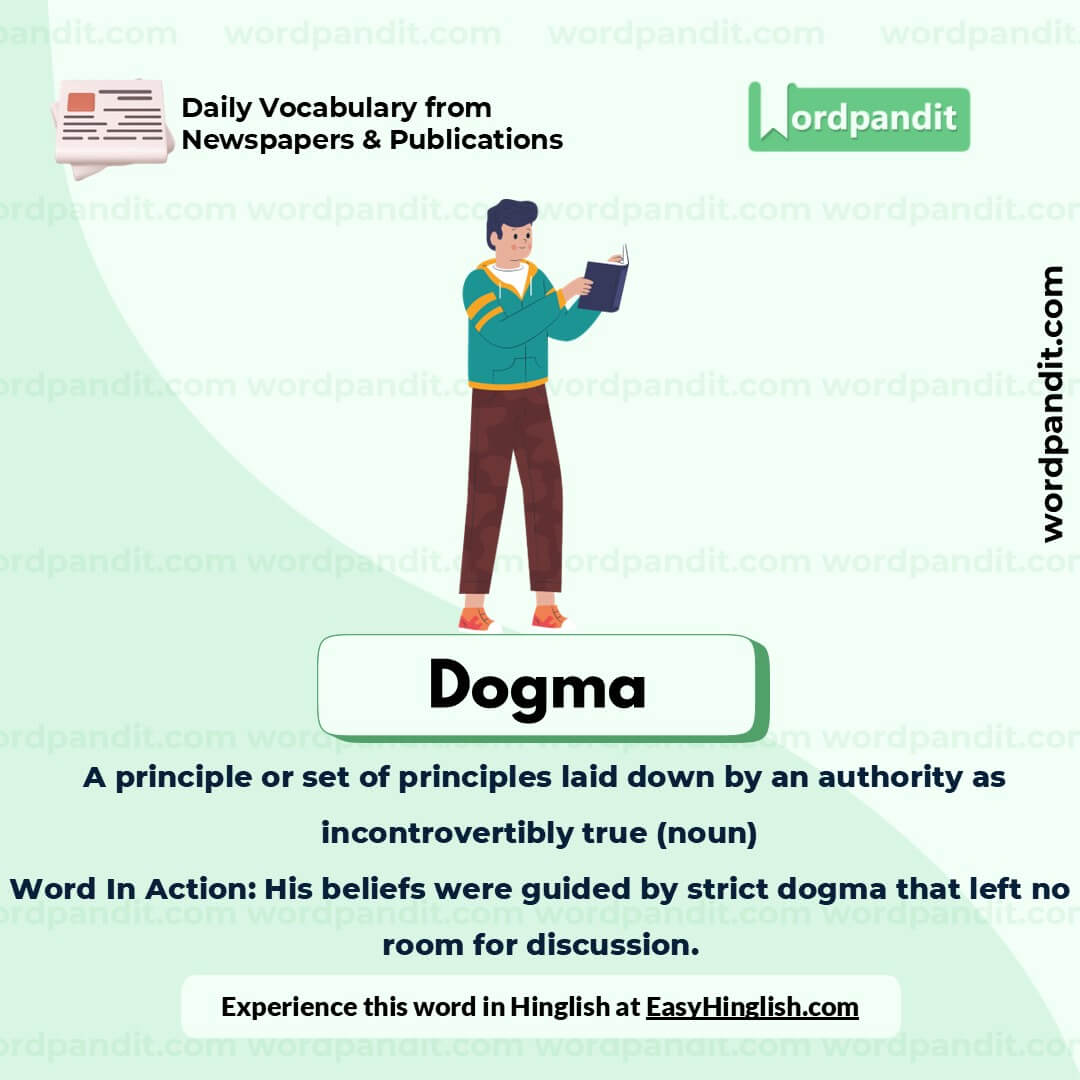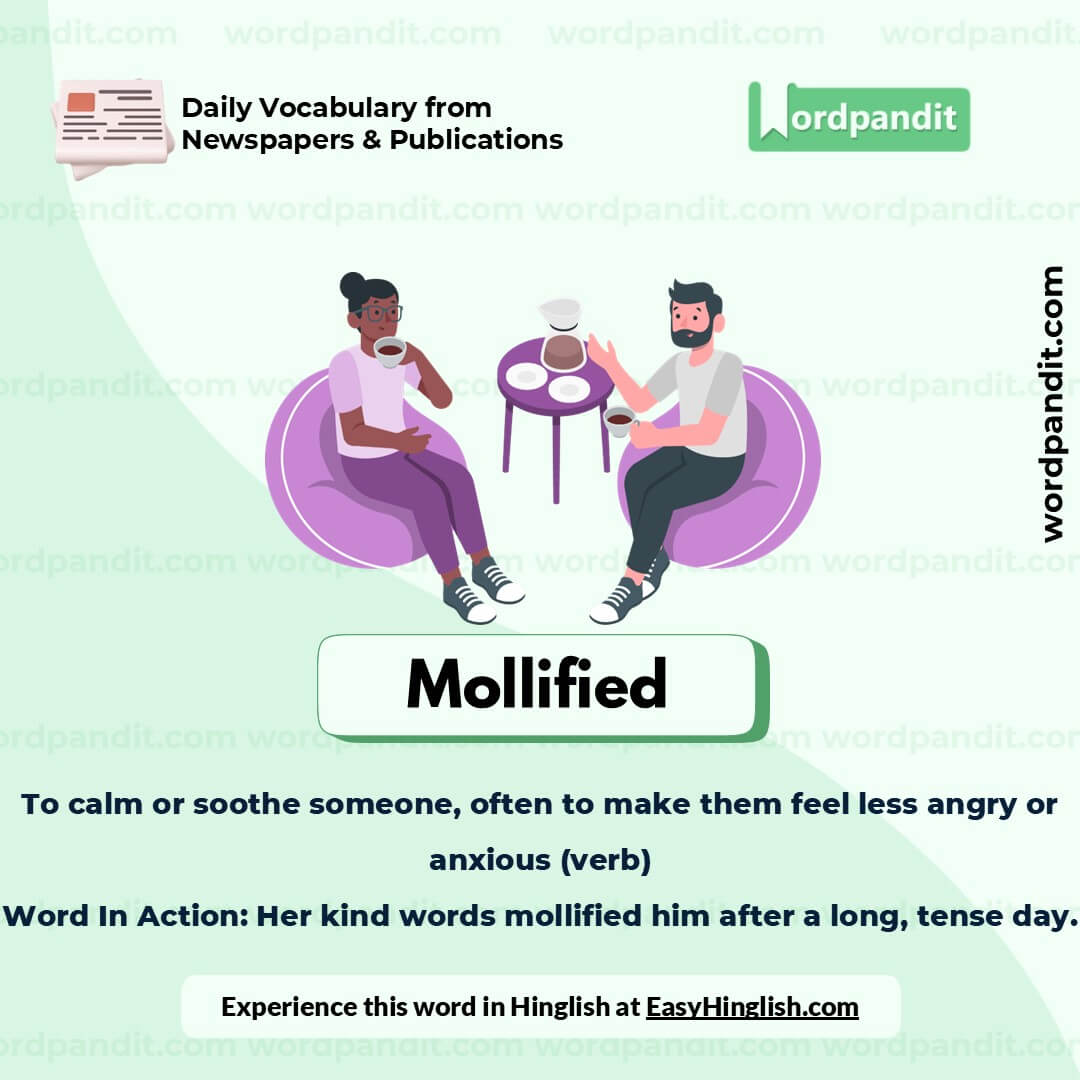Daily Vocabulary from International Newspapers and Publications
Expand Your Vocabulary with Wordpandit’s Global Vocabulary Hub
At Wordpandit, we are committed to helping you develop a truly global vocabulary by drawing from some of the most respected international publications. This section is designed to keep you ahead of the curve by introducing you to words that define global conversations and trends.
The Power of Global Sources
To help you think and communicate on a global scale, we curate vocabulary from renowned international sources, such as:
- The New York Times
- The Washington Post
- BBC
- The Guardian
- The Economist
- Scientific American
- Psychology Today
- And many more...
Stay Global, Stay Competitive
Our daily updates from international publications ensure you are consistently exposed to new words that reflect global news and developments, making sure your vocabulary is not only current but also globally relevant.
Enhance Your Global Perspective
Whether you’re preparing for international exams, aiming to excel in global business communication, or want to enhance your language skills for personal growth, Wordpandit offers the resources you need to thrive in a global context.
Effective Learning, Global Reach
Our learning methodology combines global examples, memory aids, and interactive activities, allowing you to internalize new words effectively and apply them in real-world scenarios.
Begin Your Global Vocabulary Journey Now!
Why Choose Wordpandit?
Practical Learning: Focus on words you'll actually encounter in real-world reading, enhancing your comprehension and communication skills.
Diverse Content: From current affairs to scientific breakthroughs, our varied sources expose you to vocabulary across multiple domains.
Effortless Integration: Make Wordpandit a part of your daily routine. Just a few minutes each day can significantly boost your lexicon over time.
Your Path to Vocabulary Mastery
- Visit our Daily Vocabulary section regularly
- Explore new words and their usage in context
- Practice incorporating these words into your own writing and speech
- Track your progress as your vocabulary expands
Start Your Journey Today
Embark on your vocabulary enhancement journey with Wordpandit. By consistently engaging with our daily posts, you'll build a robust vocabulary that serves you well in academic, professional, and personal contexts.
Remember, a word a day keeps linguistic limitations at bay. Make Wordpandit your daily companion in the quest for vocabulary excellence!
WORD-1: Dogma
Context:
"Reality is no match for MAGA dogma." - The Washington Post
Explanatory Paragraph:
Dogma refers to a set of beliefs or principles that are strongly held by a group or individual, often accepted without question or skepticism. When someone adheres to dogma, they may uphold these beliefs even in the face of opposing evidence or differing viewpoints.
Meaning: A principle or set of principles laid down by an authority as incontrovertibly true (noun)
Pronunciation: DAWG-muh
Difficulty Level: ⭐⭐⭐ (Intermediate)
Etymology: From Greek dogma meaning "opinion" or "tenet," later adopted into Latin with the same meaning
Synonyms & Antonyms:
Synonyms: doctrine, principle, creed, belief, ideology
Antonyms: doubt, uncertainty, skepticism, open-mindedness
Usage Examples:
- Despite the scientific evidence, his views were firmly rooted in political dogma.
- Her approach to education was free from the usual dogma, allowing for a more flexible curriculum.
- The leaders promoted their dogma as if it were beyond question or debate.
- To challenge social dogma requires courage and open-mindedness.
Cultural Reference:
"Dogma is the sacrifice of wisdom to consistency." - Lewis Mumford, cultural critic
Think About It:
What are some examples of dogma in society today, and how do they affect people’s willingness to think critically?
Quick Activity:
Identify a belief you hold strongly. Reflect on whether it’s based on evidence or if it’s something you've accepted without questioning.
Memory Tip:
Remember "dogma" by associating it with "dogged" beliefs—those held with unwavering determination, regardless of evidence.
Real-World Application:
In discussions on politics or social norms, recognizing dogma helps in understanding why some people hold beliefs strongly, even if those beliefs resist change or questioning.
WORD-2: Mollified
Context:
"I doubt voters are going to be mollified by the thought that many macroeconomic indicators are positive." - The Washington Post
Explanatory Paragraph:
The word "mollified" describes the act of calming someone down, easing their anger or frustration, or making them feel less anxious. When someone is mollified, they are typically reassured or soothed, often through kind words, actions, or explanations that help lessen their concerns or irritation.
Meaning: To calm or soothe someone, often to make them feel less angry or anxious (verb)
Pronunciation: MAHL-uh-fied
Difficulty Level: ⭐⭐ (Intermediate)
Etymology: From Latin mollificare meaning "to soften," derived from mollis ("soft")
Synonyms & Antonyms:
Synonyms: appeased, pacified, soothed, calmed, placated
Antonyms: agitated, aggravated, provoked, enraged, irritated
Usage Examples:
- The manager's apology mollified the upset customers, who were ready to give the store another chance.
- After hearing her reasoning, he was mollified and agreed to move forward with the plan.
- The teacher’s kind words mollified the student who was nervous about the test.
- Efforts to mollify the crowd with discounts and gifts ultimately calmed the situation.
Cultural Reference:
In Shakespeare’s *The Tempest*, Prospero tries to mollify his enemies by using magic to control their emotions, showing the lengths some go to in calming others.
Think About It:
What techniques do you use to mollify someone when they are upset, and why do you think they work?
Quick Activity:
Think of a time you had to calm someone down. Write about how you managed to mollify them and what you learned from the experience.
Memory Tip:
Remember "mollified" by associating it with "melt"—as in, you "melt away" someone’s anger or frustration.
Real-World Application:
Understanding how to mollify others can improve relationships, both personal and professional, by helping reduce tension and create a more cooperative atmosphere.
WORD-3: Procurement
Context:
"Skim off government procurement." - The Washington Post
Explanatory Paragraph:
Procurement involves the process of acquiring goods, services, or works from an external source. It's commonly used in business and government to describe the purchasing of items necessary for operations, often following specific guidelines and procedures to ensure the best value and quality.
Meaning: The action of obtaining or purchasing something, especially for business or government needs (noun)
Pronunciation: pruh-KYOOR-muhnt
Difficulty Level: ⭐⭐⭐ (Intermediate)
Etymology: From the Latin word procurementum, meaning "to take care of, to manage"
Synonyms & Antonyms:
Synonyms: acquisition, purchase, sourcing, obtainment
Antonyms: forfeiture, loss, dispossession, relinquishment
Usage Examples:
- The government launched a new procurement policy to ensure transparency in purchasing.
- Procurement of medical supplies was prioritized during the pandemic to meet healthcare needs.
- His role includes overseeing the procurement of essential equipment for the company.
- Many companies seek procurement specialists to streamline their purchasing processes.
Cultural Reference:
"Public procurement can transform economies, strengthen social inclusion, and mitigate climate change impacts." - United Nations Office for Project Services (UNOPS)
Think About It:
How does the procurement process impact the quality and cost of goods and services in public institutions?
Quick Activity:
Identify three types of goods or services that might require procurement in a large corporation, and describe why they are essential.
Memory Tip:
Think of "procurement" as "pro-curing" or "getting in advance," which can help remind you it's about obtaining something essential.
Real-World Application:
In business and government, procurement processes ensure that resources are obtained efficiently, often focusing on cost-effectiveness and compliance with legal standards.
WORD-4: Outlandish
Context:
"Vance has... used another tactic to keep his distance from Trump’s most outlandish assertions." - The Washington Post
Explanatory Paragraph:
Outlandish describes something that is bizarre, unusual, or extreme to the point of being strange or difficult to believe. This word often implies that an idea, behavior, or appearance is wildly unconventional or far outside the norms of society, drawing attention due to its eccentric or exaggerated nature.
Meaning: Extremely unusual, bizarre, or strange (adjective)
Pronunciation: owt-LAN-dish
Difficulty Level: ⭐⭐ (Intermediate)
Etymology: Derived from Middle English outland meaning "foreign" or "strange land," originally referring to things or people from outside one’s own country
Synonyms & Antonyms:
Synonyms: bizarre, eccentric, peculiar, extraordinary, odd
Antonyms: conventional, ordinary, familiar, standard, typical
Usage Examples:
- His outlandish costume drew attention from everyone at the party.
- The scientist proposed an outlandish theory that seemed impossible to believe at first.
- Her outlandish fashion choices always made her stand out in a crowd.
- The artist’s work is known for its outlandish designs and unique color combinations.
Cultural Reference:
Characters like Willy Wonka from *Charlie and the Chocolate Factory* are known for their outlandish personalities, clothing, and ideas, which make them memorable and fascinating.
Think About It:
What are some advantages and potential drawbacks of embracing outlandish ideas or behaviors?
Quick Activity:
Think of the most outlandish thing you've seen or heard. Describe what made it so unusual and how people reacted to it.
Memory Tip:
Associate "outlandish" with "out of this land" to remember it describes something bizarre, strange, or unconventional.
Real-World Application:
Recognizing outlandish ideas is useful in creative fields, as these ideas often spark innovative thinking, though they may require refinement to become practical.
WORD-5: Exacerbates
Context:
"Simply hunting down narcotics traffickers only exacerbates the violence south of the border." - The Washington Post
Explanatory Paragraph:
The term "exacerbates" refers to making a bad situation worse or intensifying negative conditions. When something exacerbates a problem, it increases its severity, often by adding stress, tension, or additional obstacles that worsen the situation.
Meaning: To make a situation worse or more intense (verb)
Pronunciation: ig-ZAS-er-bayts
Difficulty Level: ⭐⭐⭐ (Intermediate)
Etymology: From Latin exacerbare, meaning "to make harsh or bitter," derived from ex ("out of") and acerbus ("harsh, bitter")
Synonyms & Antonyms:
Synonyms: worsen, aggravate, intensify, heighten, amplify
Antonyms: alleviate, mitigate, soothe, reduce, relieve
Usage Examples:
- The decision to cut funding only exacerbated the issues in the public health system.
- His insensitive comments exacerbated the tension in the room.
- Heavy rains exacerbated the flooding in the already waterlogged area.
- Ignoring the issue only exacerbates the underlying problem.
Cultural Reference:
In environmental discussions, climate change is often said to exacerbate natural disasters, intensifying their frequency and impact globally.
Think About It:
What are some common ways people unintentionally exacerbate situations, and how can this be avoided?
Quick Activity:
Write about a time when a small issue was exacerbated by miscommunication. How could the situation have been handled differently?
Memory Tip:
Think of "exacerbates" as "extra aches" to remember that it means making things worse or more intense.
Real-World Application:
Understanding how actions exacerbate problems is important in conflict resolution, as it helps prevent escalation and promotes more constructive solutions.















